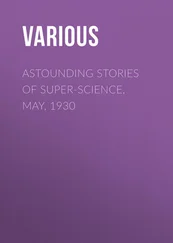Deda Misha licked the white corners of his dry lips as he talked. “I had noticed that our accountant-accompanist Galochka had taken an interest in Makin right away. At the first rehearsal for his debut at the Workers’ Club, Galochka put her shawl around his shoulders — it might’ve been cold that evening. The next time, Makin brought her a casserole that, he said, he had cooked from a French recipe. We all had a taste after the rehearsal. Very exotic. After that, Makin and Galochka acted like they’d been best friends since diapers. About a year later, as Makin was gaining traction, Galochka was replaced by someone from the newly founded Magadan Philharmonic, but they remained inseparable.” Deda Misha took long pauses between sentences. “I ran into her several times on the stairs of our apartment building. She was always bringing him food. A woman from the depot had told me in confidence that she’d heard Galochka boasting about the Italian silk stockings Makin had procured for her. Not my business, I said. Everyone gives what they can, and that’s the only thing Makin could give a woman. Silk stockings. I almost asked him for a pair of tights for Baba Mila — after all, I was working hard on his behalf — but I didn’t want to risk any rumors of foreign schemes. Commercial speculation was illegal. I was the director, you remember.”
Sonya had fallen into the story’s dreamy trance. Inexplicably, it felt like her life had somehow become intertwined with Makin’s, years before her birth. Maybe she’d known him in her past life. She finally grasped what word Deda Misha didn’t want to say out loud, as if the walls and teacups still had ears. That word and its female counterpart were popular insults at school this quarter, even though all girls who were best friends held hands.
“In a few years, through tireless negotiation with heads of this and that at the municipal and regional levels, Gumenyuk and I managed to arrange for Makin to go on a solo concert tour around Kolyma. He gave his all, at every performance, not the lip-synching that goes on with the pop singers these days.
“In the next few years he toured not only Kolyma but all of Siberia, Yakutia, Kamchatka, Chukotka, Sakhalin, and the Kuril Islands. He sang for the deer farmers, fishermen, petroleum workers, submarine sailors, geologists, scientists. He sang in small towns, too, and was more popular than any other touring shows. If people heard that Makin was in town, they would run over to his performance instead of attending concerts or plays from the capitals, full of award-winning artists. Can you imagine such a blow, when they sent telegrams to the Ministry of Culture in Moscow? He began receiving letters from his old fans. Many were surprised he was still alive. He told me himself. He even looked younger and healthier. His gypsy eyes burned with the fire of life again. He told me he was writing a new cycle of songs about Magadan and Kolyma, about its unique natural beauty, the rare kindness of its people. But I wasn’t satisfied yet, silly me. I thought that the real comeback would be for him to return to Moscow with a solo concert. Gumenyuk and I continued to work on that. Our progress was slow: Makin was still blacklisted in central Russia. But we were able to convince some big artists we’d gotten in touch with in the process to add Magadan to their touring itineraries on the promise that they would get to meet the legendary Makin. And that was an unexpected benefit for everyone.
“Makin stayed involved with the music program at the Workers’ Club. Your baba Mila kept telling me to lighten his voluntary obligations, but a man, especially an artist, is only truly alive when he is working. Just as she herself had said before. You stop working, you start dying, and that’s all there is to it. He had Galochka, but I’m sure he missed his friends and admirers at the petroleum depot, too. He was such an inspiration to our amateur musical ensembles.
“Listen carefully now, Sonya. There is nothing out that window. One day in the early sixties, Galochka came to my office for advice on a matter of the heart. I was used to fixing people’s marital and personal problems, but this turned out to be a special case. She told me she’d been in love with Makin ever since that first rehearsal all those years ago, and she couldn’t bear loving in secret any longer. I almost fell off my chair. Makin was teaching her to sing, Galochka rattled on, and explained to her the secrets of the old songs. He personally knew many of the authors who had written them and was apparently very upset about the vulgar interpretations of modern singers. One example she gave was about the way they announce on TV that ‘Coachman, don’t race the horses’ is the national coachman’s song. It irritated Makin because, according to him, it was written in his childhood home in St. Petersburg by some Baronessa von Ritter as an answer to another song—‘Race, coachman, faster into the distance.’ Such answers to songs were popular at the turn of the century, Galochka said.”
Sonya liked this very much. Answer-songs. Baronessa von Ritter. Maybe that’s who she was in her past life, a beautiful and wealthy baronessa. She went on sleigh rides hitched to a troika of white horses, warm under a bear blanket. Sonya looked out the window again. She really should start worrying about Max, but all she could think of was how great it would be to ride in a sleigh with her best friend, Sabrinka. She wouldn’t have to wonder the whole time whether Max was waiting for a kiss.
“In Makin’s cramped room, stuffed with books and old recordings, Galochka went on, the world was bigger and more interesting even than going to the Black Sea for vacation, with a two-day stopover in Moscow. He told her about growing up in St. Petersburg, listening to Mayakovsky recite his poetry in the parlor of his parents’ house. His verses struck Makin’s soul like whips. On her part, Galochka told Makin about her childhood in the suburbs of Moscow. Her great-grandfather had been a royal beekeeper.
“She loved him, she said, and was certain that he loved her. She didn’t know why he hadn’t made a move all these years. Maybe the age difference. Makin was in his mid-fifties by then, but she, too, had been on the edge of spinsterhood for some time. Should she ask him to marry her or should she continue waiting?”
Sonya scooted to the edge of her taboret, listening now in horror.
“Poor Galochka. She was a pleasant woman, femininely plump, big blue eyes, wavy black hair. Half a head taller than Comrade Makin, by the way. To me, she looked like a kindergarten teacher, someone who should be surrounded by children, not numbers. Her personnel file said ‘never married’; I didn’t pry. She’d always struck me as a bit ‘not of this world,’ as they say, but she was a hardworking accountant. That’s what mattered to me most.
“So, Galochka and Makin. Da, I couldn’t dream of this in my sleep. How could she not have known of his disease? How could she not see it? Granted, sometimes I felt that if I didn’t know, I myself wouldn’t be able to tell from just looking at him. But it is what a person chooses to do behind closed doors, seen only by his conscience, that defines his true character. I even wondered if he had played some kind of trick on her.
“‘Galochka,’ I said to her, ‘I have to tell you something that, to be honest, I thought you knew.’ She was blinking at me with those big blue eyes. ‘Vadim Andreevich has been observed to, how to say, not fall in love with women. It is not your fault.’
“She smiled. ‘Maybe he hasn’t met the right one yet? For a special person like him it must be difficult.’
“‘With any woman,’ I said. How could I explain something I didn’t myself fully understand?
Читать дальше
Конец ознакомительного отрывка
Купить книгу












